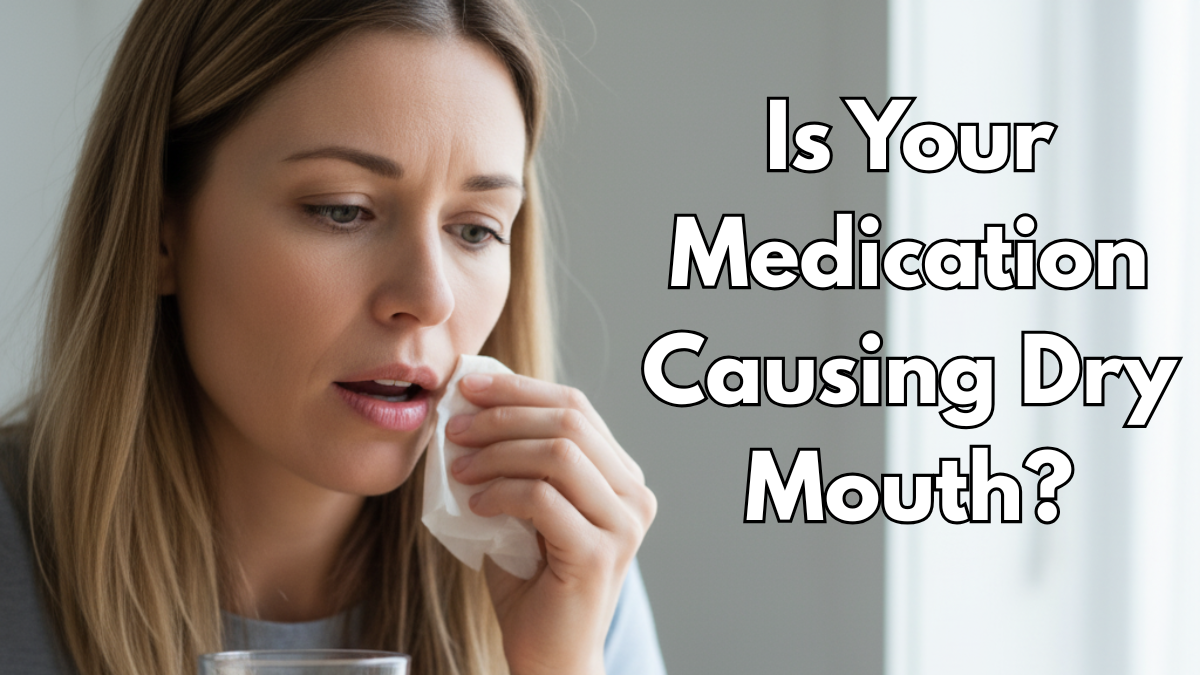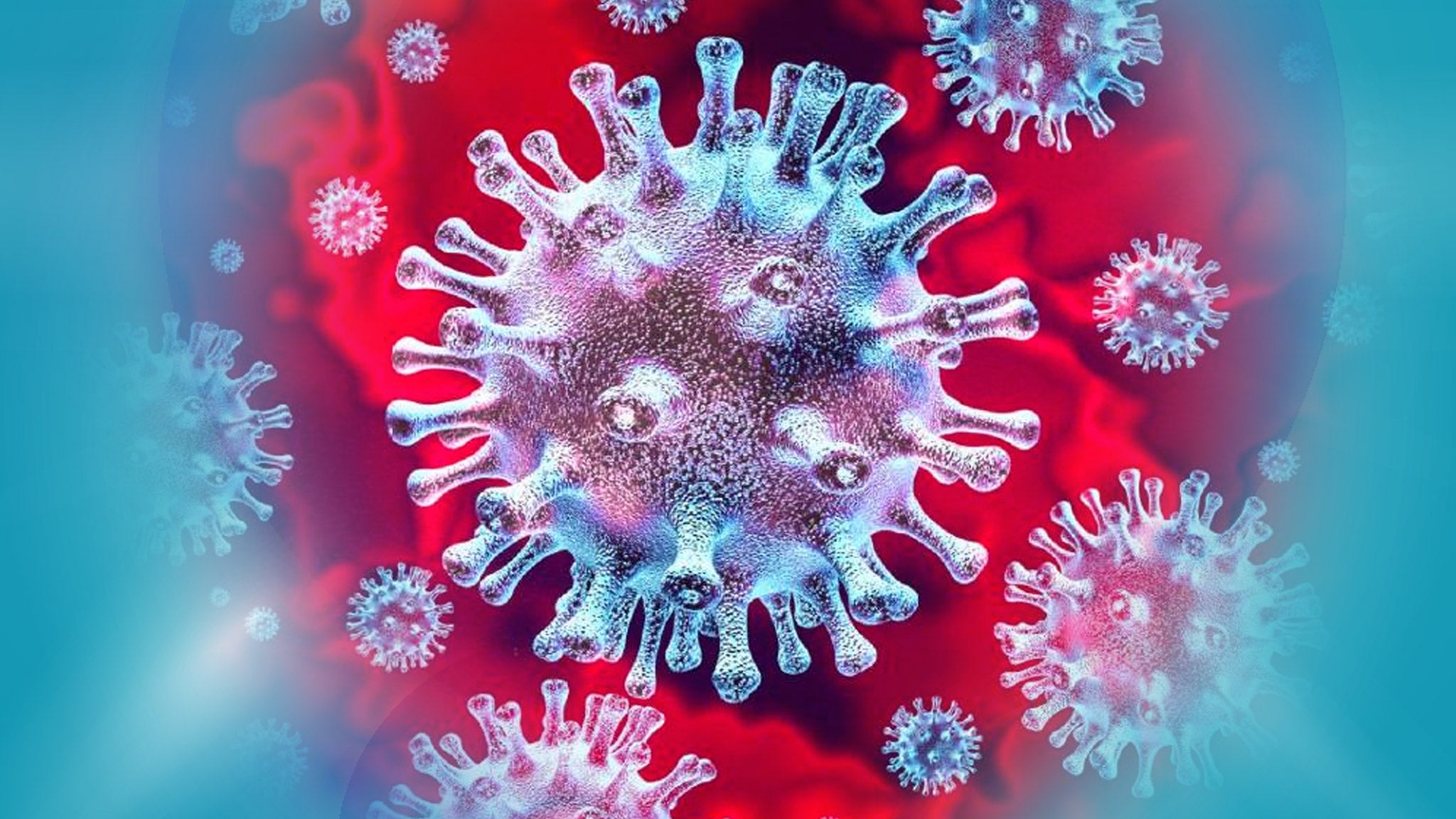Noticing a dry, sticky feeling in your mouth after starting a new prescription? You’re not imagining it. Dry mouth is one of the most common side effects of many medications, from antidepressants and antihistamines to blood pressure tablets.
In fact, studies show that hundreds of commonly used medicines can reduce saliva production, leaving millions of people dealing with the discomfort every day.
But dry mouth isn’t just an annoying side effect; it can increase your risk of cavities, gum disease, and even trouble speaking or swallowing if left unmanaged.
The good news? Understanding why certain medications cause dry mouth and learning how to relieve it can make a big difference.
In this article, we’ll cover what causes medication-related dry mouth and the best ways to manage it so you can protect both your comfort and your oral health.
What Is Dry Mouth?
Dry mouth, also called xerostomia, happens when your salivary glands don't produce enough saliva. Saliva plays a crucial role in keeping your mouth healthy. It washes away food particles, neutralises acids from bacteria and helps you swallow and taste food properly.
When your mouth does not make enough saliva, it can feel dry or sticky. You may find it hard to swallow or speak.
Some people say it feels like cotton in the mouth. It can happen to anyone, but it is more common in older adults who take many medicines.
Which Medications Often Lead to Dry Mouth?
Lots of medications can cause dry mouth as a side effect. This happens because some drugs affect how your salivary glands work. They might slow down saliva production or change how it flows. Here are some common types of medications that can cause dry mouth:
-
Antihistamines: These medicines help with allergies, such as a runny nose or sneezing.
-
Antidepressants: Some medicines for depression or anxiety can reduce saliva.
-
Blood pressure medications: Drugs like beta-blockers or diuretics can dry out your mouth.
-
Pain relievers: Certain pain medicines, like opioids, can cause dry mouth.
-
Decongestants: These help with stuffy noses but can also reduce saliva.
-
Chemotherapy drugs: Cancer treatments often cause dry mouth as a side effect.
If you’re taking any of these, talk to your doctor. Don’t stop taking your medicine without their advice. They might adjust your dose or suggest other options.
Why Do These Medications Cause Dry Mouth?
The underlying cause of medication-related dry mouth is often how drugs influence your nervous system and saliva production. Here are the main reasons:
-
Blocked nerve signals – Many medications interfere with the messages your nervous system sends to your salivary glands. Without these signals, saliva production slows down.
-
Changes in the autonomic nervous system – Some drugs disrupt the system that controls automatic functions like digestion and saliva flow, leading to reduced moisture in the mouth.
-
Fluid loss from diuretics – Water pills and other diuretic medications increase urination, which can cause dehydration and lower saliva production.
-
Polypharmacy in older adults – Taking multiple medications at the same time is common in older age, and the combined effects often make dry mouth symptoms worse.
In short, whether through nerve interference, fluid changes or multiple prescriptions, many common drugs can reduce saliva and leave your mouth uncomfortably dry.
How to Manage Dry Mouth
Dry mouth can be managed. Here are practical tips you can try:
1. Stay Hydrated
Drink water often during the day. Take small sips while eating to help chew and swallow. Avoid sugary drinks or soda because they can harm your teeth. Keeping a water bottle with you can help you remember to stay hydrated.
2. Chew Sugar-Free Gum
Chewing gum can help your mouth make more saliva. Try Recaldent Gum. It’s sugar-free and has ingredients that can protect your teeth. Chewing gum after meals can also freshen your breath.
3. Use a Tongue Cleaner
A dry mouth can lead to bad breath. A tongue cleaner helps by removing bacteria from your tongue, keeping your mouth fresh and clean.
4. Try Moisturising Products
Some products are made to help with dry mouth. For example, tooth mousse can add moisture and protect your teeth. It’s easy to apply and work while you sleep. Ask your dentist if it’s right for you.
5. Use the Right Toothpaste
Regular toothpaste can sometimes be too harsh for a dry mouth. Choose a toothpaste made for dry mouth. These are gentler and help keep your mouth hydrated.
6. Avoid Certain Foods and Drinks
Some things can make dry mouth worse. Try to avoid:
-
Salty or spicy foods
-
Sugary snacks or drinks
-
Alcohol or caffeine
-
Dry foods like crackers or chips
Instead, eat soft, moist foods like yoghurt or soups. These are easier to chew and swallow.
Quick Tips for a Healthy Mouth
Beyond the tips already mentioned, making small adjustments can keep your mouth in good shape. Consider trying the following:
-
Brush twice a day: Use a soft toothbrush and a toothpaste designed for dry mouth.
-
Floss daily: This removes food and bacteria from between your teeth.
-
Rinse with water: After eating, swish water in your mouth to clean it.
-
Limit smoking and alcohol: Both can make dry mouth worse.
-
Eat crunchy fruits and veggies: Apples or carrots can help clean your teeth naturally.
These habits can make a big difference. They’re easy to do and help protect your smile.
When to See a Doctor or Dentist
Talk to your doctor if a dry mouth makes daily activities hard. If you have trouble eating, swallowing, or talking, get checked. Your doctor may change your medicine or send you to a specialist.
Also, see your dentist more frequently if you have chronic dry mouth. They can monitor your oral health and provide preventive treatments. Professional fluoride applications and other treatments can help protect your teeth.
Consider seeing a dental hygienist for specialised cleaning and education. They can teach you specific techniques for managing dry mouth.
Regular professional cleanings become even more important when saliva production is reduced.
Wrapping Up
Dry mouth may be uncomfortable, but it doesn’t have to take over your day. While medications are a common cause, simple steps, like drinking more water, using products such as tooth mousse or hydrating toothpaste, and keeping up with dental visits, can make a big difference.
If your medication is contributing to the problem, speak with your doctor about safe options. With the right care, you can keep your mouth healthy, comfortable and your smile feeling fresh.











